Description
Name in North American Boletes: Boletellus russellii
Genus: Aureoboletus
- Genus 2: Boletellus
- Genus 3: Frostiella
Species: Russellii
Common Name: Russell’s Bolete
Tells: Long, deeply textured, pink-tan to red-brown stem is quite viscid, esp. by the base. Variable-colored cap often fissured or in scale-like patches.
Other Information: Cap color varies from yellow-brown to reddish-brown to olive-gray. Deep yellow to greenish-yellow pores DNS, or sometimes get brighter yellow. Yellow or pale yellow cap flesh DNS, but often browns around larval tunnels. A fairly rare mushroom that is often confused with Boletellus betula. Russellii has a viscid stem while betula does not.
Edibility: Good.
CHEMICAL TESTS:
- NH4OH (Ammonia): Cap skin turns reddish. Cap flesh does not change.
- KOH: Cap skin does not change. Cap flesh may turn reddish, but not always.
- FeSO4 (Iron Salts): Cap skin turns olive gray. Cap flesh turns blackish blue.
Links:
 |
563 |  |
298 |  |
86 |  |
207 |

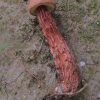
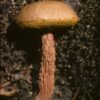
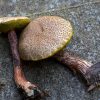
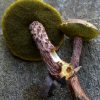
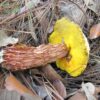
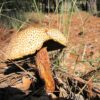
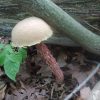
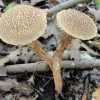
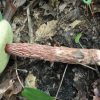
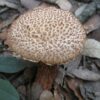
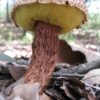
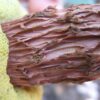
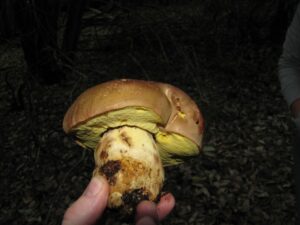
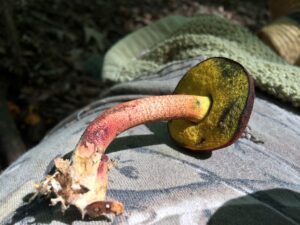
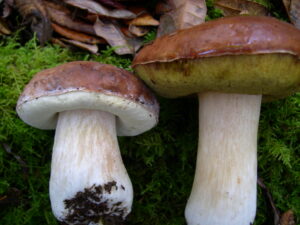
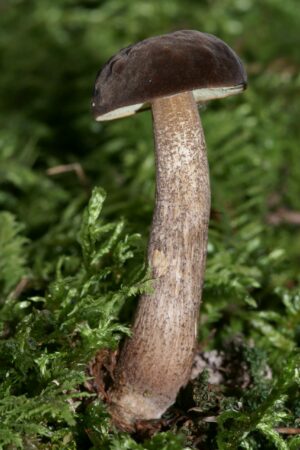
Got something to discuss?